Kabale University Launches an incubation center to promote youth innovation
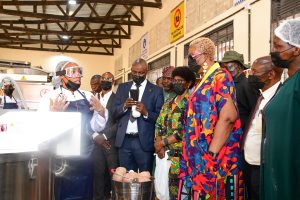 13 November 2025 marked a historic milestone for Kabale University with the official launch of the Kabale University Business Incubation Centre (KABBIC), a state-of-the-art facility designed to nurture innovation, empower youth, and drive value addition across key agricultural value chains in the region.
13 November 2025 marked a historic milestone for Kabale University with the official launch of the Kabale University Business Incubation Centre (KABBIC), a state-of-the-art facility designed to nurture innovation, empower youth, and drive value addition across key agricultural value chains in the region.
KABBIC has been established as a multidisciplinary innovation hub where young entrepreneurs, students, faculty and community partners can develop practical solutions to real-world challenges, especially in agriculture. Through training, mentorship, research support and access to modern technology, the center aims to unlock creativity and stimulate economic growth in Kigezi and beyond.
At its core, KABBIC will promote enterprise development through multiple value chains, with the potato value chain taking center stage. The region, which produces 60 percent of Uganda’s potato output, stands to benefit greatly from the center’s focus on clean seed production, climate-smart agronomy and value addition infrastructure for products such as crisps and dehydrated flakes.

During the launch, Hajji Mukwatampora Muzamiru, Commissioner for Admissions, Scholarships and Students’ Affairs at the Ministry of Education and Sports, represented the Permanent Secretary, Dr. Kedrace Turyagyenda. In his remarks, he noted that with 78 percent of Uganda’s population under the age of 30, the country’s youthful demographic presents both a challenge and an opportunity.
“This incubation center will create jobs and promote industrialization at the local level, addressing challenges like transportation and access to markets for farmers,” he said. He added that transforming young people’s ideas into viable enterprises is key to sustainable development.

Speaking at the event, Ms. Nwanne Vwede-Obahor, UNDP Uganda Resident Representative, emphasized the center’s national significance. She noted that the initiative aims to empower 150,000 farmers and create over 10,000 jobs, while improving access to finance, fostering innovation, and enhancing food security.
“This initiative will build resilience among farmers and strengthen Uganda’s agribusiness ecosystem,” she said, highlighting the importance of equipping communities with skills to adapt to climate change and unlock new economic opportunities.
Vice Chancellor Prof. Joy C. Kwesiga described the launch of KABBIC as the beginning of a new era in the University’s mission to advance practical, community-centered education.
“This centre will enhance our students’ skills and provide farmers with better market access,” she noted. Prof. Kwesiga reaffirmed the University’s commitment to expanding research and innovation despite infrastructural challenges and called for continued collaboration with development partners.
KABBIC will draw on the strengths of multiple faculties, including the Faculty of Agriculture and Environmental Sciences, the Faculty of Economics and Management Sciences, and other academic units whose expertise supports agribusiness development, entrepreneurship and applied research.
 Kabale University’s collaboration with institutions such as UNDP, Uganda Development Bank (UDB), and other partners represents a strategic approach to solving local challenges through innovation. With over 7,000 students at the University, the center will serve as a practical training ground for future job creators, innovators and agripreneurs.
Kabale University’s collaboration with institutions such as UNDP, Uganda Development Bank (UDB), and other partners represents a strategic approach to solving local challenges through innovation. With over 7,000 students at the University, the center will serve as a practical training ground for future job creators, innovators and agripreneurs.
By providing infrastructure for value addition, supporting farmer cooperatives, and nurturing enterprise development, KABBIC is expected to boost productivity, reduce post-harvest losses and expand market opportunities for smallholder farmers.
Uganda’s commitment to innovation as a driver of socioeconomic transformation aligns with the vision behind KABBIC. The launch sets a strong foundation for a future where young innovators, farmers and entrepreneurs can translate ideas into sustainable enterprises, strengthening the region’s agricultural value chains and contributing to national development.
As Kabale University steps into this new chapter, KABBIC stands as a beacon of opportunity and progress, offering a platform where knowledge meets action and innovation powers community transformation.
Discover more from Kabale University News
Subscribe to get the latest posts sent to your email.




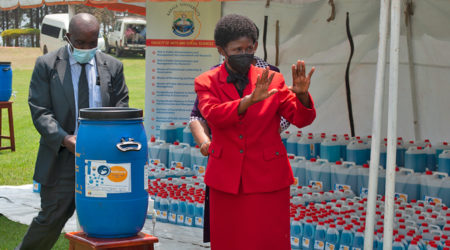

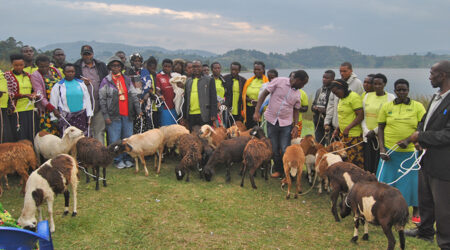
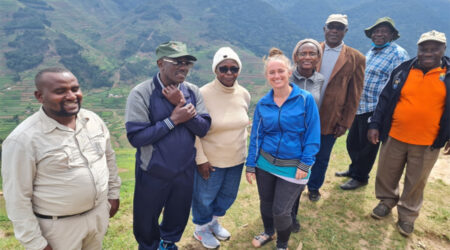
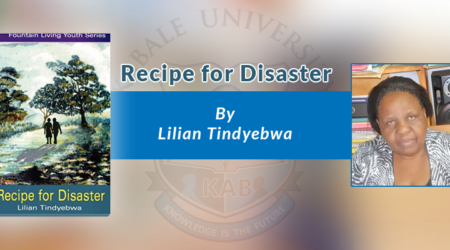
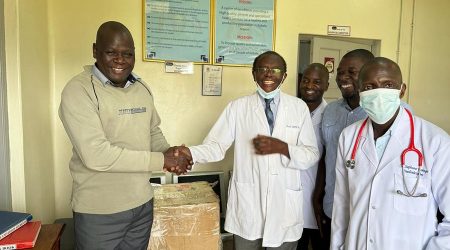
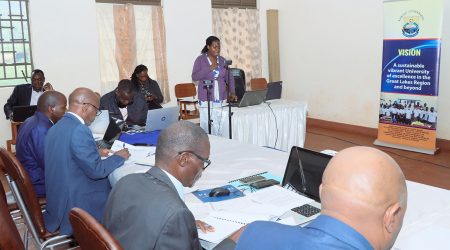
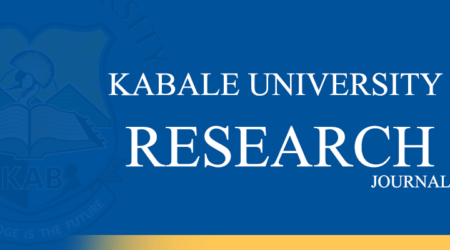

Comment (1)
What a timely intervention by #Kabaleuniversity!! Agriculture is the largest employer in Uganda with over 70% of the population engaged in agriculture sector. This makes it the backbone of the national economy yet accounts for approximately 24% of the Gross Domestic Product (GDP) and ONLY BETWEEN 35 AND 42% of export earnings. This data indicates untapped potential of agricultural sector in Uganda which #KABBIC will handle.
The biggest bottlenecks for agriculture in Uganda include reliance on rain without possibility of rainwater tapping?harvesting or irrigations during dry weather patterns: low-adoption of modern inputs and technologies: poor infrastructure: limited access to finance: challenges with land tenure and fragmentaton: and MINDSET CHANGE.
The solutions to be adopted by KABBIC should include mindset change to align youth and women attitudes towards agribusiness and viewing agriculture as a profitable venture not punishment like we were raised up to believe.
The other solution will be encouragement of establishing agricutural banking institutions with grace periods matching seasons of crops. These will offer affordable and readily available financial resources to the youth after training.
Ministries , Departments and Agemcies (MDAs) should be informed of water catchment opportunities to do away with reliance on rain-fed agriculture. This will enable all year round harvesting hence enhanced incomes for socioeconomical transormation of both familiies and country.
I salute you, Kabale University for this ground breaking innovation, KABBIC to create jobs for youth and women.
Dr Eng Charles Muhigirwa
BSc – MEng – MEd – DSc – PhD